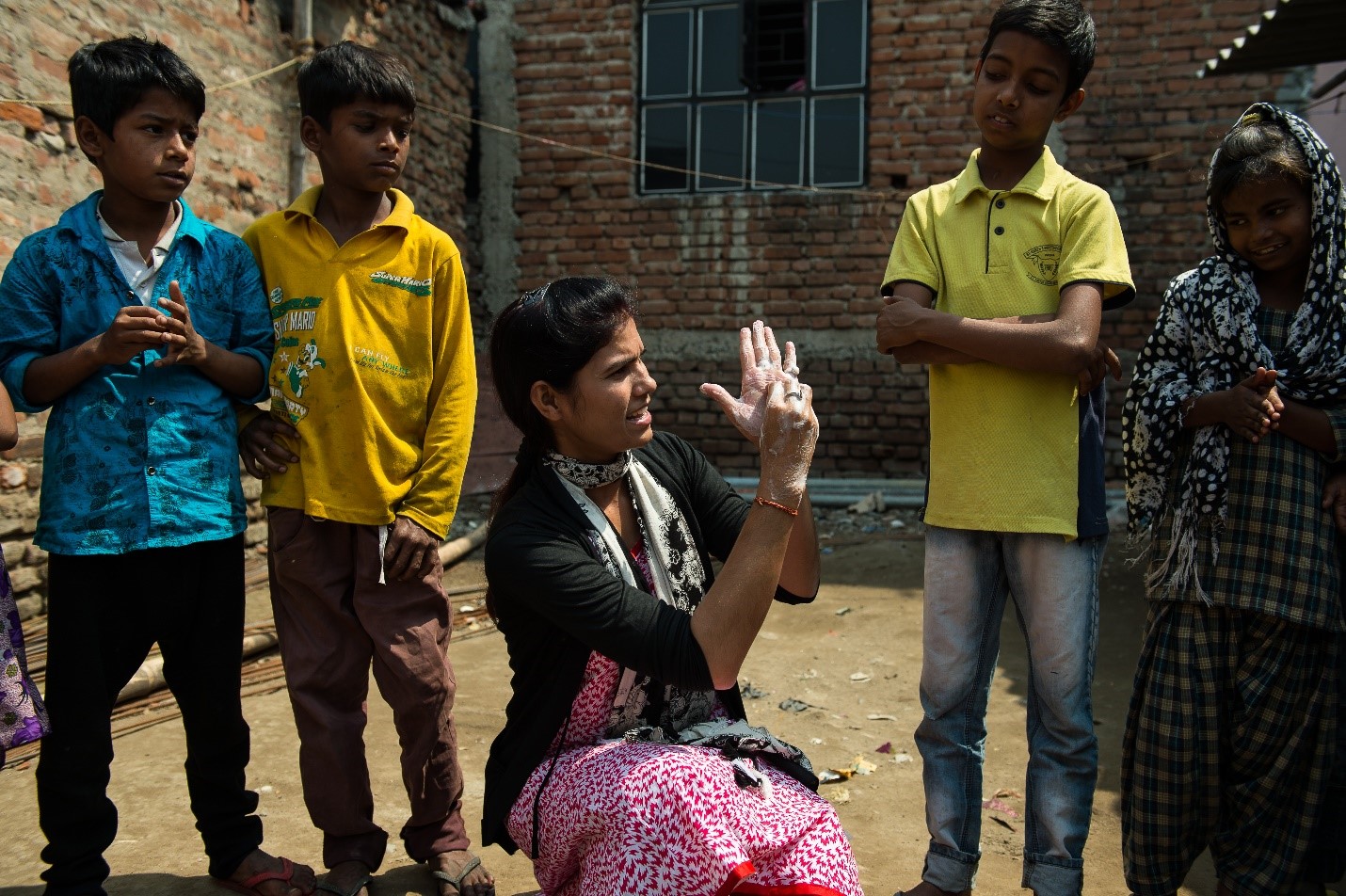
A healthy future is in our hands

This post also appears on the Global Handwashing Day website.
I’m always impressed by the tireless dedication of community health volunteers, but I have to admit that Babli is my favorite I’ve met so far. She was just so… cool. I imagined myself as one of the children in this peri-urban community in the poor state of Bihar, India, seeing Babli as a big sister and wanting so much to impress. They mirrored her every move as she demonstrated the six steps of handwashing. She wasn’t from this community, she explained to us, but she grew up in a poor neighborhood, too, and understands their struggles. She wanted to give back, to help give these children a stronger start toward a healthy future.
“The future is in our hands” is meant to be a figurative expression, but in the case of handwashing, the meaning is quite literal in ways that are still being uncovered by researchers.
If I were to ask you about the health benefits of handwashing, you would probably say something about preventing contagious illnesses like diarrhea. And you’d be right. Although the link might seem obvious to those of us with easy access to health information, this is not the case everywhere and remains an important focus of health groups working with low-resource urban and rural communities. Community health workers like Babli and Meera (seen in the video below) have a pivotal role to play.
But an even clearer picture is emerging as researchers learn more about the impact of long-term gut damage caused by intestinal bugs that can travel into the mouth through unwashed hands. Repeated assaults by these pathogens take their toll on a child’s physical and cognitive growth, depleting the body of nutrients and the future of possibilities due to stunted physical and cognitive development. Tragically, this damage can be irreversible, especially if it occurs within the first two years of life.
As we learn more about this connection, the importance of incorporating WASH interventions (like handwashing education) into nutrition programs becomes increasingly apparent. Access to nutritious food is essential, but incomplete. Washing hands at key moments, like before mealtime and after using the toilet, helps ensure children can properly absorb the nutrients they need to grow. In this fundamental way, our (clean) hands really do hold the key to future potential.
And while it’s true that the future is in our collective hands – as parents, donors, and decision makers – let’s not forget that the future is ultimately in the little hands we’re all here for: the children themselves. “One of the most exciting changes I’m seeing is children as change agents,” says Dr. Khanna of Save the Children India. As children become more engaged in healthy habit formation, with teachers like Babli and Meera to guide them, those habits become a norm for a new generation poised to reach their fullest potential.


